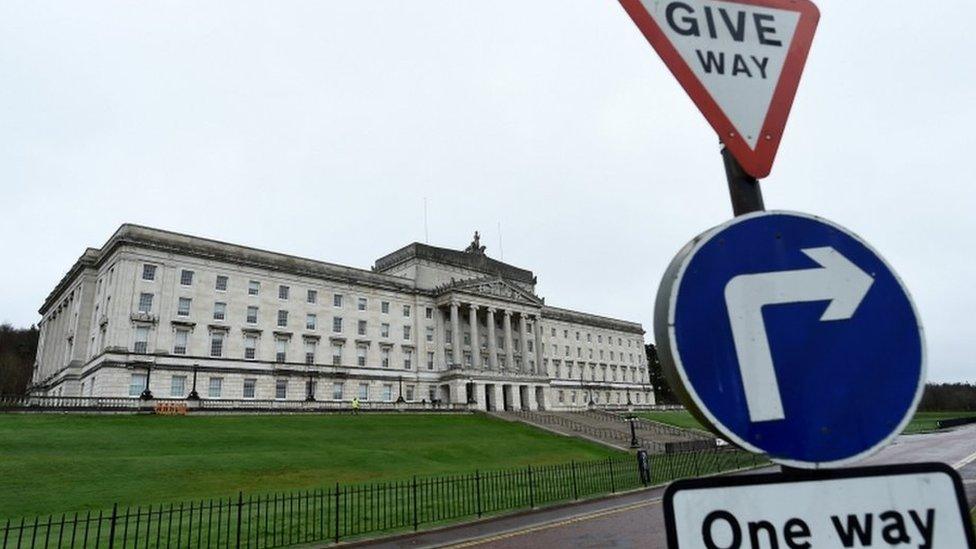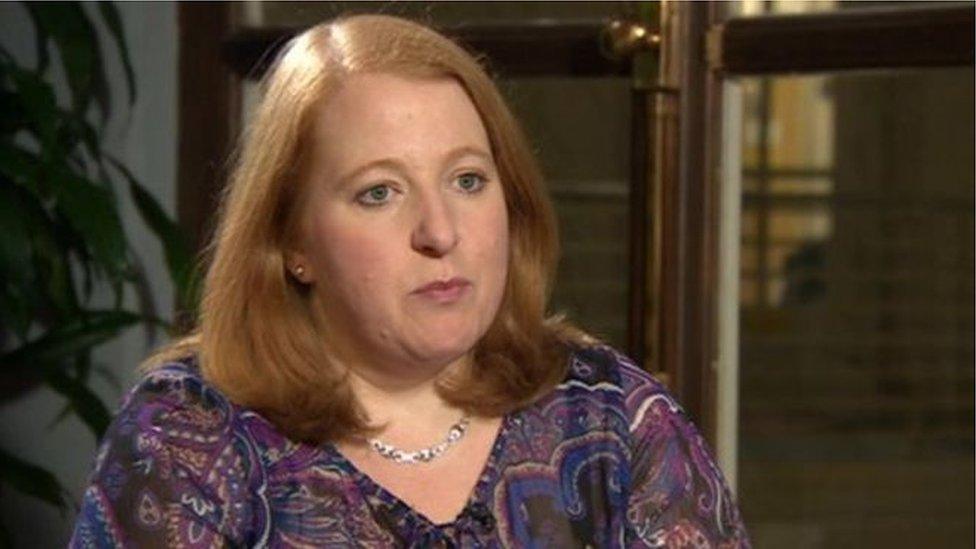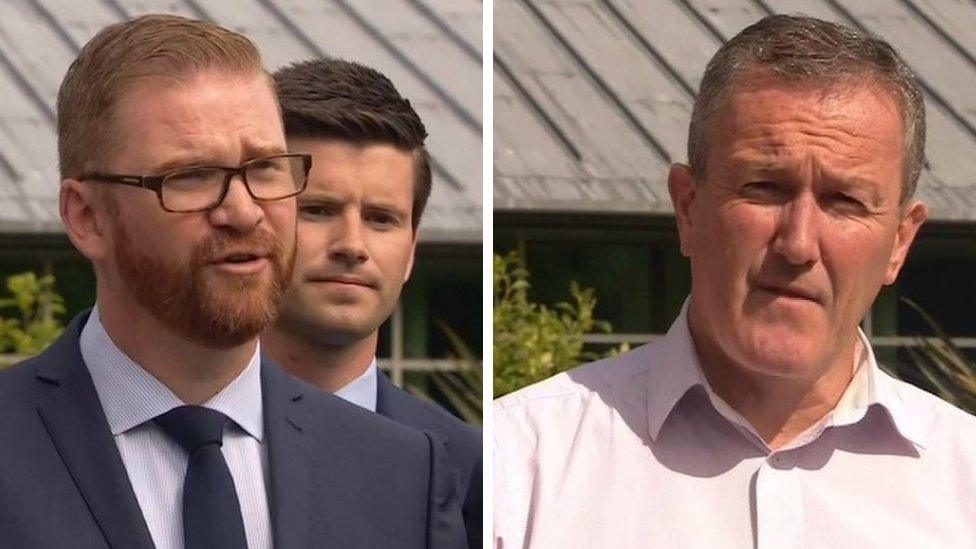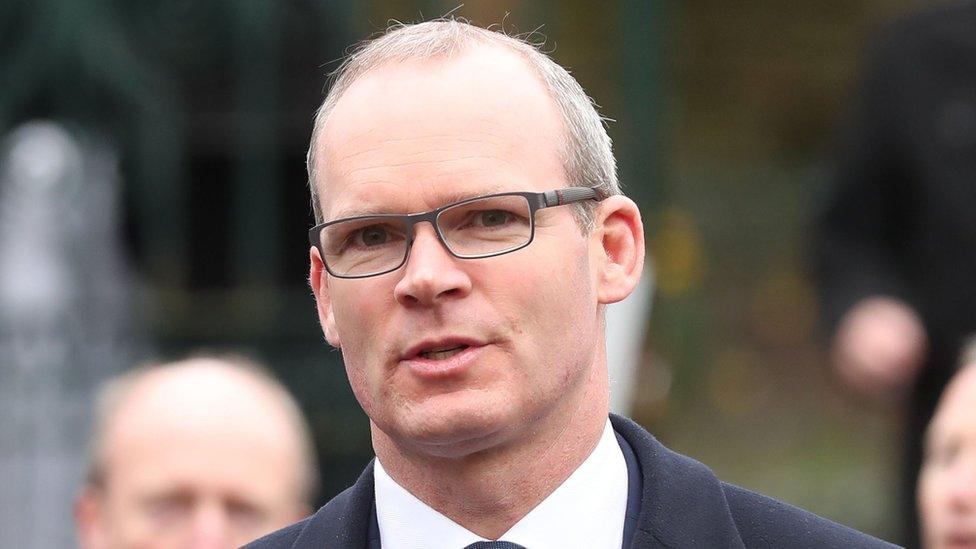Church leaders in power-sharing plea to NI politicians
- Published

Northern Ireland has been without a power-sharing executive since March
Church leaders have urged Northern Ireland's politicians that "the most vulnerable are at greater risk" if they cannot strike a power-sharing deal.
The parties have until 29 June to reach agreement.
The deadline was set by Northern Ireland Secretary of State James Brokenshire.
Talks aimed at restoring the Northern Ireland Executive are due to take place at Stormont on Monday.
The parties have been warned that if they cannot reach agreement, direct rule could follow.
The appeal is made in a letter signed by Church of Ireland Primate Richard Clarke, the Catholic Primate of All-Ireland Eamon Martin, Laurence Graham, President of the Methodist Church in Ireland, Bishop John McDowell, President of the Irish Council of Churches and Noble McNeely, Moderator of the Presbyterian Church in Ireland.
The letter was sent to DUP leader Arlene Foster, Sinn Féin's leader in Northern Ireland Michelle O'Neill, Alliance Party leader Naomi Long, SDLP leader Colum Eastwood, Ulster Unionist Robin Swann, as well as Mr Brokenshire and Irish Foreign Affairs Minister Simon Coveney.
The church leaders said they pray and hope that all political leaders will do what is necessary to end uncertainty.
'Continued concern'
They encourage all the political leaders involved in the talks to "go the extra mile" to reach an accommodation "which establishes a sustainable administration that will work for the common good of all in our society".
"While we acknowledge the complexities involved in reaching an agreement, we want to express our continued concern that without an agreed budget and with no executive ministers in place, the most vulnerable are at greater risk, while crucial decisions on education, health and welfare are not being taken," they wrote.
"At the same time, I am sure you are aware that small voluntary and community groups - who play such a vital role at the heart of our villages, towns and cities - face mounting uncertainty and are finding it increasingly difficult to support those most in need.
"Furthermore, with no executive there has been comparatively little co-ordinated local input into the Brexit discussions and even less detailed preparation for what lies ahead for Northern Ireland and the island as a whole."
Northern Ireland has been without a power-sharing executive since March and without a first and deputy first minister since January.
The institutions collapsed amid a bitter row between the DUP and Sinn Féin about a botched green energy scheme.
The late deputy first minister, Martin McGuinness, stood down, in a move that triggered a snap election.
- Published23 June 2017

- Published22 June 2017

- Published19 June 2017
